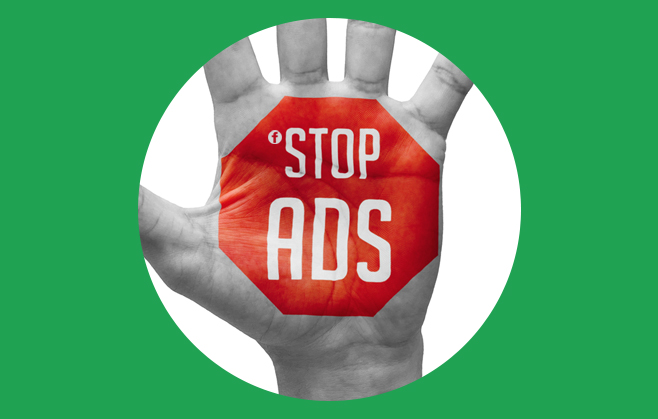
Facebook to block ad blockers
Facebook has just this week announced its decision to block ad blockers. With many users having these extensions installed, just what will this mean for audience retention, advertisers, and Facebook itself?
When Facebook first launched all those years ago, users signed up to a free service for the purpose of easily connecting with one another- we weren’t bombarded with in-feed and side bar ads competing for our attention, or slowing down loading times. But with the digital evolution, ads on the platform and across social media are now considered the norm, and something we generally can’t escape- unless we download and install ad-blockers. Those such as Facebook Adblock and Adblock Plus are widely used, and can be added to Chrome, Safari, and various other browsers, ensuring all ads, malware and tracking are removed. This is of course a huge relief for those users who wish to enjoy their social media experience free from unwanted sponsored and side-bar ads. Facebook’s decision however, will mean desktop users will soon be shown ads whether they like it or not- this will affect the reported 200 million people globally who currently use Facebook ad-blockers, a number that (including ad blocker use across the web), has doubled in just two years.
In favour of its audience though, Facebook has announced somewhat of a compromise, with the promise of new tools that will let users have more control over the types of ads they see. The platform has also created new ad formats which should more seamlessly merge with other enjoyable content types people are used to receiving. Facebook writes whether this be a well-made ad “showing your favourite band is coming to town or an amazing airline deal to a tropical vacation”, it’s clear that it hopes ads will start to appease users. Users will also be allowed to remove profile preferences should they choose, such as customer lists, so that they’re not aligned with certain advertisers and ads- this will ensure these ads aren’t displayed to them.
Understandably, brands have been hesitant in the past to invest in Facebook ad campaigns, should their reach have been impacted. Proctor and Gamble for instance, revealed they would be lessening the number of Facebook ads created, moving away from targeting and sticking to broader display ads. Facebook’s decision will also likely create a knock-on effect, especially with publishing brands who display ads on their sites- a reported 23-28% of revenue is currently being lost due to ad-blocking, something that publishers are keen to reverse. Already, the New York Times for example, has been experimenting with ad blockers, imploring site visitors to disable their extensions and pay for a subscription, stating- “the best things in life aren’t free.” Might the rest of the media world soon follow suit?
For Facebook, the platform announced that ads need to be shown in order to support the sophisticated level of features we enjoy every day- they’re crucial to maintain the free service provided, rather than having users subscribe to such a monthly fee, which hypothetically might allow an opt out on ads. And of course, having more advertising revenue coming in will boost the company’s already impressive ad figures. Facebook’s Second Quarter results alone revealed total ad revenue, including 84% from mobile, to be $6.24 billion. It’s clear that the company wishes to boost this even further, perhaps monopolising the online advertising space alongside rival Google.
What do you think of Facebook’s announcement? Do you use ad-blocker extensions on social media or across the web? We’d love to hear your thoughts as always, so please tweet to us @PracticeDigital and share your comments on our Facebook page.




